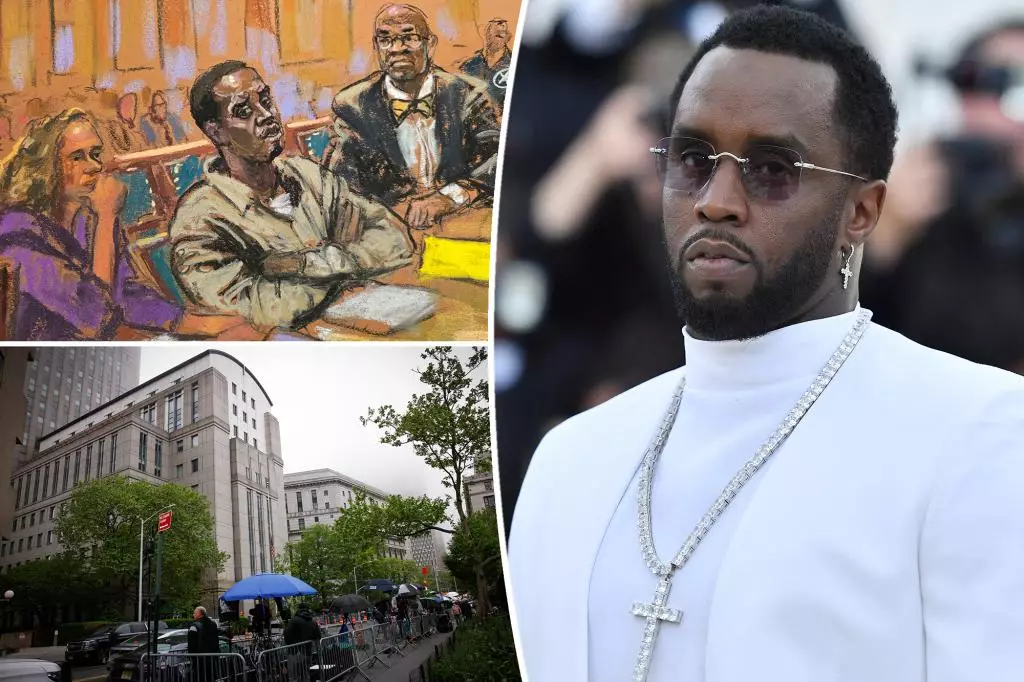The upcoming trial of Sean “Diddy” Combs marks a significant moment in not just the realms of music and entertainment but also within the broader context of societal norms surrounding power dynamics and sexual abuse. As jury selection commences, a cloud of serious allegations looms over Combs, indicating not only potential criminality but also the deep-seated issues that permeate the industry he has thrived in. This 55-year-old mogul, once celebrated for his groundbreaking contributions to hip-hop and culture, now stands accused of using the very empire he built to exploit vulnerable women systematically. Such accusations raise critical questions about accountability for individuals wielding immense influence and the grim realities faced by those who fall victim to abuse.
The Gravity of the Allegations
The indictment against Combs is alarming in its breadth. Described in language typically reserved for organized crime, it alleges a prolonged pattern of abusive behavior, sex trafficking, and racketeering. The description of “Freak Offs,” where women supposedly engaged in drug-fueled sexual acts, underscores a deeply troubling culture within his sphere of influence. By painting a vivid picture of a toxic environment designed to manipulate and intimidate, this trial moves beyond mere legal ramifications; it becomes a mirror reflecting the exploitative tendencies embedded in the upper echelons of entertainment.
What is particularly disturbing is the alleged duality in Combs’ tactics—promising career advancement to those who complied while simultaneously employing threats and violence against those who resisted. The reported incidences of extreme coercion—including beatings and even attempted kidnapping—cast a harrowing light on how power can become a weapon against the vulnerable. Rather than merely being a reflection of one man’s actions, this scenario encapsulates a systemic issue that warrants attention.
The Defense: A Tenuous Stand
Combs’ legal team maintains that he is innocent and argues that any interaction was consensual. Their assertion that the encounters were mutual decisions raises questions about what constitutes consent, especially in environments steeped in hierarchical power dynamics. While acknowledging the existence of drug use and unhealthy relationships, the defense attempts to portray these encounters as consensual interactions between adults. However, the idea of consent becomes convoluted when examined in a framework where career aspirations and personal safety can become bargaining chips for deep-seated fears.
The narrative constructed by the defense indicates a reliance on perceptions surrounding adult relationships while largely dismissing the broader implications of power dynamics and control, elements undeniably present in situations of sexual exploitation. Diddy’s declaration of innocence, coupled with a history of past violent incidents, raises doubts about this claim of consensuality that must be scrutinized in a courtroom setting.
A Legacy in Jeopardy
This trial is poised to have profound ramifications not only for Combs but also for the hip-hop industry as a whole. It begs the question: is there a threshold for accountability in an industry that has often overlooked abusive behavior in favor of fame and fortune? Diddy’s historical encounters with the law—ranging from violent confrontations to previous accusations of sexual misconduct—paint a troubling picture, indicating a pattern that could give credence to the current allegations.
Society cannot ignore that the entertainment industry has, for too long, tolerated behavior that could be classified under abusive and coercive practices. Combs’ situation forces a reckoning that could push industry stakeholders to prioritize ethical conduct over profit. With the trial potentially extending for eight weeks, it remains to be seen whether the truth will prevail, or if this case will become yet another example of darkness veiled by celebrity status.
The Broader Implications
The unfolding courtroom drama is about more than just one man’s fate; it epitomizes a critical moment in the ongoing conversation surrounding sexual abuse, power, and the responsibilities of public figures. As influential figures are scrutinized for their actions, the hope is that victims feel empowered to share their stories and that the culture of silence surrounding abusive behavior begins to shatter. Ultimately, Diddy’s trial serves as a stark reminder of the complexity of human relationships rooted in power and influence and the urgent need for accountability.

